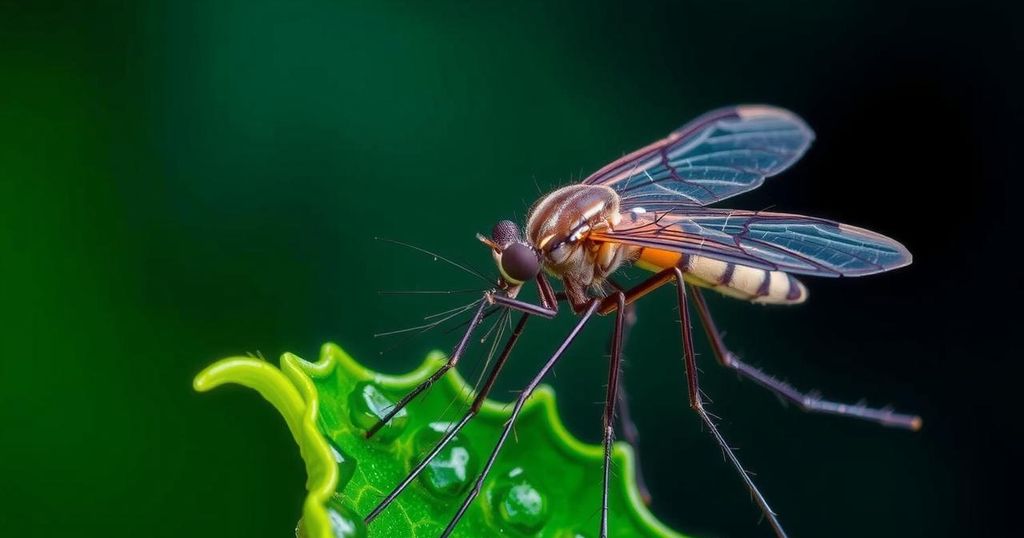Research reveals that approximately 20% of the surge in dengue cases globally is linked to climate change, with rising temperatures enabling mosquito habitats to expand into new areas. A study across 21 nations found that current warming can significantly increase dengue infections in the coming years. A promising solution involving Wolbachia-infected mosquitoes shows potential in controlling outbreaks, emphasizing the need for comprehensive responses to climate-induced health challenges.
Recent research indicates that nearly 20% of the unprecedented dengue fever cases reported globally in 2023 can be attributed to climate change. Scientists have been investigating the connection between climate-related weather events and their health impacts, focusing on diseases such as dengue that exhibit sensitivity to climatic shifts. As temperatures rise and expand mosquito habitats, dengue is becoming a significant public health concern in previously unaffected regions. The study assessed 21 countries in Asia and the Americas, revealing that current warming could lead to a surge in dengue cases in the upcoming decades, particularly in elevated areas of Latin America. In Brazil, the introduction of Wolbachia-infected mosquitoes—which inhibit dengue transmission—has shown promising results, demonstrating long-term protective benefits against the disease. This illustrates the critical intersection of climate science and public health, underscoring an urgent need for effective interventions as global temperatures continue to rise.
Dengue fever, a viral disease spread by mosquito bites, has typically remained confined to tropical and subtropical regions. However, the implications of climate change are facilitating the northward expansion of mosquito populations into new territories, thus increasing the prevalence of dengue fever. Researchers now strive to better understand and quantify the direct effects of climate change on health, particularly how warmer conditions can enhance the transmission of diseases like dengue. The current study aimed to explore this connection comprehensively, considering historical warming and its future implications for global health trends.
In conclusion, the evolving landscape of dengue fever cases is significantly influenced by climate change, with researchers attributing up to 20% of the current outbreak to rising temperatures. The findings highlight the critical importance of addressing climate issues to mitigate their health impacts. Additionally, innovative public health solutions, such as breeding Wolbachia-infected mosquitoes, show promise in combating dengue transmission. As the number of cases continues to rise, proactive measures are essential to protect communities worldwide.
Original Source: www.barrons.com






